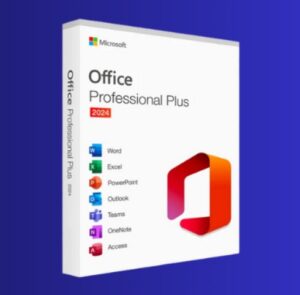At the year’s end, young learners studying in Riyadh’s international baccalaureate (IB) school need to clear a standardized final test. IB final exams measure students’ understanding and knowledge gained during the academic year. Young learners can only ace these exams by cramming all the information on time. When exams are around the corner, everyone involved in the preparation is all over the place, including – students, parents and teachers.
Table of Contents
At the year’s end, young learners studying in Riyadh’s international baccalaureate (IB) school need to clear a standardized final test. IB final exams measure students’ understanding and knowledge gained during the academic year. Young learners can only ace these exams by cramming all the information on time. When exams are around the corner, everyone involved in the preparation is all over the place, including – students, parents and teachers.
Below are some tips for young learners to ensure timely management for exam preparation.
How should students study for IB exams?
The most significant aspect of exam preparation is spending the entire year paying attention, attending classes regularly and studying regularly.
Here are a few essential points to keep in mind all year round:
Get started with your preparation early
This may sound cliché, but it is genuinely the most important point and can’t be emphasized enough. The IB curriculum includes EE, CAS, IAs, and extended projects. If your child is attending international baccalaureate schools in Riyadh, they require more than one night or one week’s worth of studying, no matter how good young learners are at mugging up.
Capitalize on multiple resources available
There is no denying that the school provides exhaustive study material. So, young learners should reach out to online resources instead of relying on them. The internet and associated institutions provide a fresh take on content; a few recommendations include LitLearn for English and Revision Village for Maths. Such study material is free of cost to cater to over 1.5 million IB graduates worldwide.
Engage with teachers
The faculty at american curriculum schools are chosen very selectively and have specific subject matter expertise. Young learners should discuss their areas of weakness or subjects they find challenging to comprehend with their teachers.
A one-on-one meeting with teachers to deliberate challenging areas and discuss the scope for academic extension is a proactive way of learning. Not only does it demonstrate the student’s passion for the subject, but it also ends up addressing any concerns that arise.
Read beyond the textbook.
Since the IB follows a universally focused curriculum, it is advised that students should go beyond the scope of the textbook. Preparing for the IB examination needs to be up-to-date with world affairs as that is a prerequisite for success in almost all subjects: humanities, languages, sciences and more.
To inculcate this habit, young learners have to keep aside ten minutes daily to read the news.
Keep scores and subjects in perspective.
The best thing about an IB assessment is the clarity it offers. From the start, the IB board is highly transparent about the weightage of each subject and section. So students’ precision about the contribution of individual assessment pieces to the final mark. Allocating time slots for specific sections of the IB exam helps young learners.
For instance, putting all the hard work in for an oral assessment worth 10% should not come at the cost of falling behind on an exam that constitutes 80% of the final mark.
Revise regularly
When studying and revising, it is essential to be regular. The best way to do that is to study daily and revise before the mid-semesters and mock tests.
Spending around 10 minutes each day on a subject can summarize the learning for the day. This way, young learners can save time and stress right before the exam. Consistency and regularity are key aspects for exam preparation.
Keep Notes
Nowadays, most of us keep our important notes on computers, which takes less time than writing them up on pen and paper. Young learners can use this to plan for their exams. This way, they have everything in place and don’t have to worry about finding the paper where they have written the study notes.
Be innovative – Switch things up!
When things get repetitive, boredom sets in, no matter how passionate a student may be about a particular subject.
Formulate innovative and new ways to study (e.g., Feynman Technique) and alternate between various strategies to remain engaged. For the best effect, rely on different methods of expression – writing, speaking, listening, drawing, and recalling.





More Stories
How Do You Choose Between 6-Hour and 12-Hour French Tutoring?
What Is a Youth Opportunity Center? Programs, Benefits, and How They Empower Young People
Top 7 Ways to Learn French Online from Home in Paris